LightRay! Young African Women in Media Leadership Series: “Women should not settle for less” – Ijeoma Okereke-Adagba
For Ijeoma Okereke-Adagba, 2024 is a year she wants to engage with so much energy and passion. Her inner drive stems from being more intentional about her career and personal growth like never before – she’s a girl on fire!
But what’s her focus? She intends to grow partnerships, strengthen her networks and relationships while on the look out for opportunities that will continue to help her raise the bar for herself.
In this special LightRay! Young Women in Media Leadership Series of the African and Global Women in Media Leadership Initiative by LightRay!, Ijeoma Okereke-Adagba takes us on her journey as she talks about how very positive she is about more big wins for the year. Enjoy the insights she shares with a sip of your favourite juice.
What made you decide to apply for the WSCIJ REWON Fellowship? Walk us through the journey of how you got to be part of the REWON Programme.
The major reason for applying was curiosity. I was curious because I’ve worked with past fellows like Stephanie Adams-Douglas, Azeezat Armah, QueenEsther Iroanusi and Titilope Fadare and I saw how their lives metamorphosed immediately after the fellowship. I knew there was something special about the ‘all girls’ fellowship and I said, I need to experience this. I tried the first time, it wasn’t successful then I think the next year there was no call, then I tried again and I made it. I’m happy my instincts and curiosity paid off so well for me because it has been one of the best experiences of my life.
What shifted for you in how you viewed your career, point of views on issues, style of reporting, etc, that were surprising ideas or thought patterns that made you do a double take?
I think I became more aware of myself, my career, my network (and the power it can bring) and my POV generally during the onboarding process. We were lodged for three days with our mentors and the WSCIJ family to properly instill some values that we would ordinarily pay for in ‘masterclasses’. Some of these values are confidence, intentionality, grit, tenacity, and the one that daily pops in my head that I’m a girl on fire. I think just going through that process alone will reignite the fire in you to do more and become more.
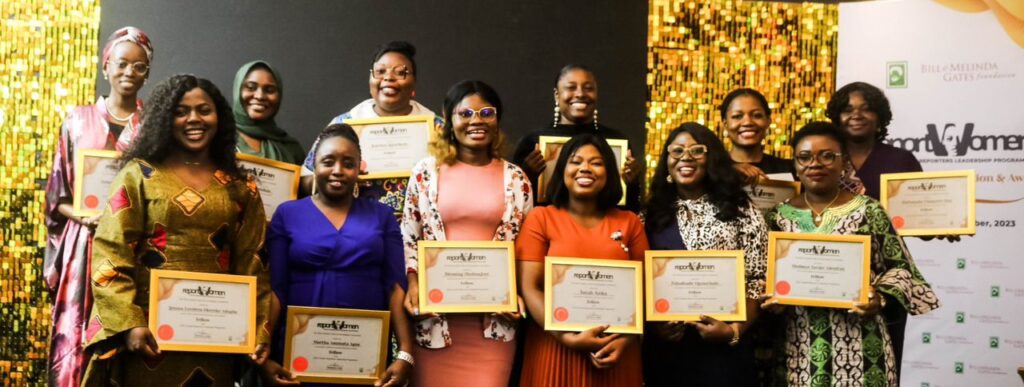
Ijeoma Okereke-Adagba along with eleven other Fellows of the Report Women Leadership Programme 2023 put together by the Wole Soyinka Centre for Investigative Journalism. PC: Okereke-Adagba.
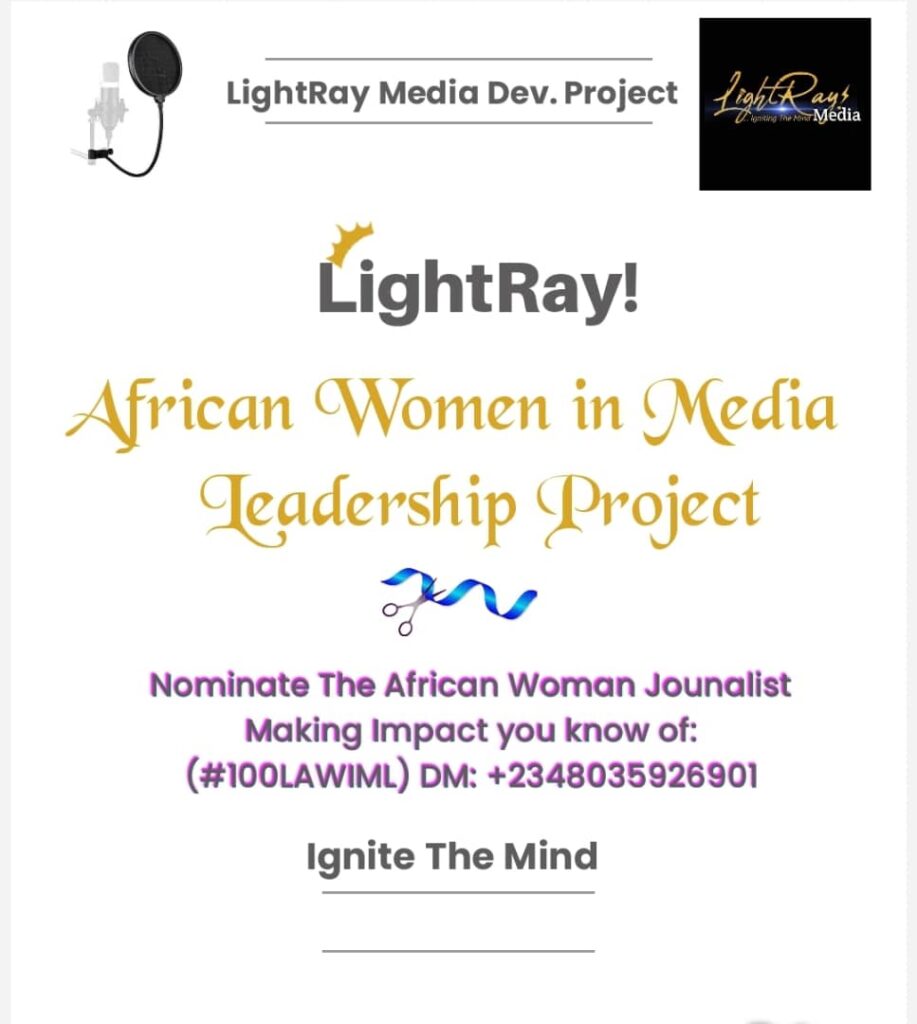
The remaining six months were notes sent to us to demonstrate how these values have become part of us. When I was carrying out my leadership project, which I thought was a task too big for me, considering the fact that others were implementing capacity building/mentoring programs, how would I carry out a research? Who will fill the surveys? Do I have the necessary skills as a researcher? Who can I reach out to in my circle to guide me through during this process. I started rejuvenating the idea over and over. I remember how I shared this with the whole family during the onboarding session in Lagos and I literally cried sharing the stories of women who struggle with work and family and the challenges that come with it and everyone encouraged me to pursue the idea. It’s this kind of support that spurs one to grow.
What was your story and project idea on, and what was the outcome for each?
My story project focused on the lives of women (elderly and widows) who sweep the streets of Jos and it’s environment for a meager sum of N8,000 monthly. What was most striking and sad for me was the fact that not only are they among the least paid in Nigeria, they were being owed for 4-9months. You can imagine. They also work with PPEs to protect them from health hazards, considering the fact they are old. Thankfully, 3 months after the report, the new government promised to increase their salary and address some of these issues. We will continue to report it until something happens.
For my leadership project (which I am so proud of), I embarked on a research to assess the impact of motherhood on career development of Female journalists in Nigeria, the first of its kind. The research report highlighted key issues Women who are mothers face in the newsroom such as lack of child-friendly workspaces, lack of flexible work arrangements, lack of development/capacity building opportunities after returning from leave, feelings of frustration and burnout, and in some cases, lack of maternity leave. You’d be shocked to see in the report that over 70% of mothers in the newsroom have declined work opportunities due to childcare responsibilities which shouldn’t be so, except in very constraining circumstances. Motherhood is a full-time job which means that for most journalists, they’re combining 2 high-powered and highly demanding careers.
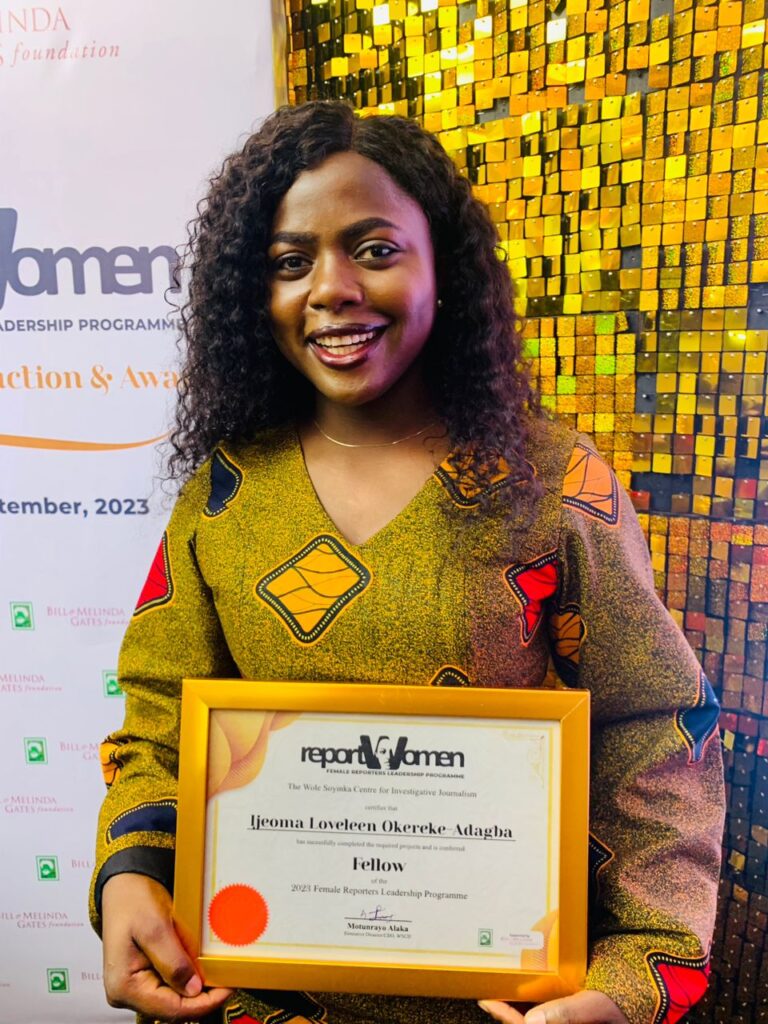
Ijeoma Okereke-Adagba, REWON Fellow. PC: Okereke-Adagba: “Start somewhere. Don’t sit and imagine everyone have their lives all figured out. No one has it intact. Start somewhere and before you know it, you’re on your path to success.” PC: Okereke-Adagba.

In addition, only 25% of respondents say they get adequate support from their employers, whereas 44.6 per cent of respondents say that they have no support from their employers. 30.4 per cent are neutral on the question of support. Still, the significant number of women who believe that their organisations do not provide adequate support for mothers in the newsroom is an indicator that maternity leave alone does not suffice.
Which is why recommended that Media organizations in Nigeria must adopt gender-conscious approaches and policies specifically designed for female journalists, particularly those who are mothers. To foster an environment where women can thrive in their media careers, organizations must critically review existing policies and structures that disadvantage women.
One of the limitations of this study was my inability to access data – insufficient data to show the number of media organisations owned by women and the number of women working in the Nigeria media industry. This is why women continue to remain the minority in newsrooms and news management structures, where only 33 per cent of managers are women globally (GMMP Report 2020).
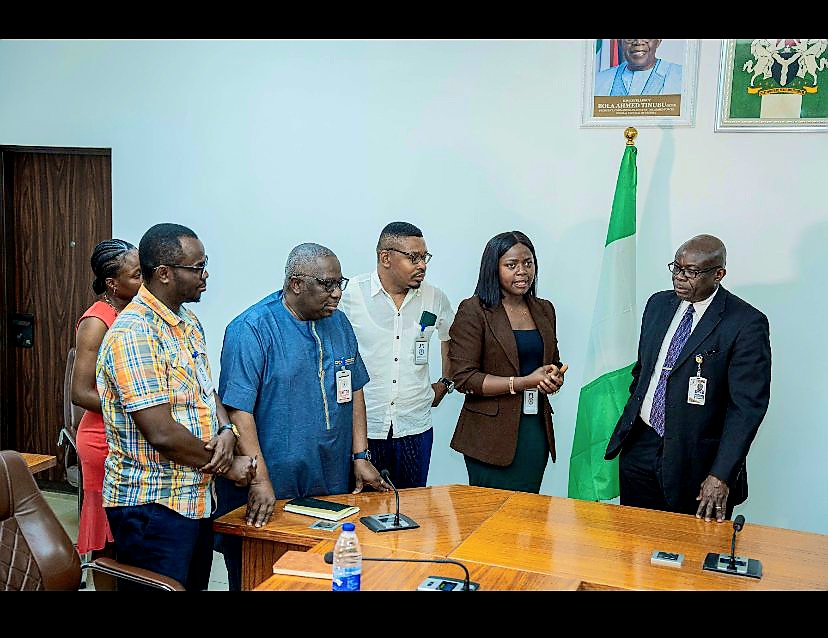
What were your expectations about the fellowship? Describe how they met, if any?What benefits, rewards, or takeaways did you receive at the fellowship that you consider has been a blessing to you?
Curiosity made me apply. I had no expectations but I got a lot of benefits and takeaways. Aside the values I mentioned earlier, I got another family. I got new sisters -REWON. I think that’s the biggest takeaway for me from this fellowship. With I need guidance, I know I have people to reach out to. I also learnt how to bold and go for what I believe- my convictions. Only me can tell the story I want. My conviction led me to undertake the research, my conviction led me to apply in the first place. “If I want it, I go for it”.
What do you intend to focus on and do differently in your career following this fellowship?
I think what I need to do, which of course I’ve been doing, is go for more knowledge. You’re as relevant as the knowledge/information you place on yourself. Improve yourself daily. Get a Master’s or PHD. Take additional courses online or in-person. Apply for more opportunities. Never get tired because time post can never be gained. If you’re not getting it right, ask questions. Let it be that you tried and didn’t get it, than never trying at all. I think that’s the shift for me from the program.
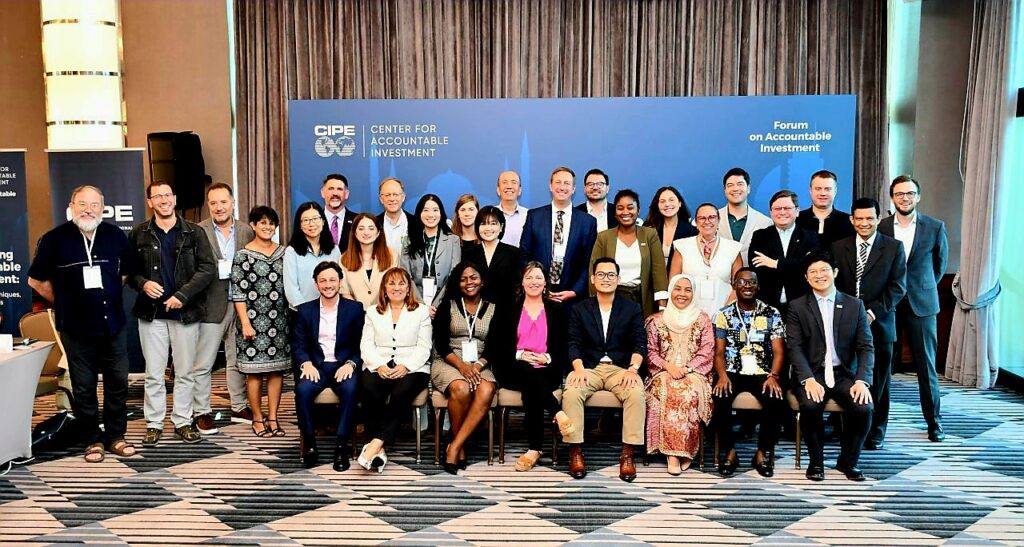
Which other fellow’s story idea and project inspired you also, and why?
All the fellows projects were amazing, we had government journalists carrying out capacity building in their organizations where nothing like that had been done before. That was so impressive. They were breaking the glass ceilings. I think Olufisoye Adenitan’s story project struck me, because it brought the government attention to to plights of the victims of the Owo massacre one year after the incident. The government then provided wheelchairs, prosthetics and medical support for these victims who were already suffering and dying. I saw the sheer joy in her face when these interventions were made and I knew that this is what journalism would be about, righting the wrongs. Blessing Oladunjoye story was another one I was really proud of- she went undercover to investigate the world of surrogacy and rise of baby factories in Nigeria. I felt that was really brave and we’re seeing the impact as the government has embarked on investigations.
How did your career in media begin?
I began working as a TV host with the Plateau Radio Television Corporation (PRTV) in Jos, Plateua state. I was still a 200 Mass Communication student at the University of Jos and I thought was going to be a great broadcaster. I guess life has other purposes for me. I worked with PRTV for about 3 years as an unpaid volunteer. It was writing this period that staff from Centre for Journalism Innovation and Development (CJID) formerly Premium Times Center for Investigative Journalism (PTCIJ) visited Unijos for a two day training on Data Journalism. Dapo Olorunyomi, Joshu Olufemi and Adedeji Adekunle were the team that came to facilitate the training. The interesting thing about this training was that we were attending a class at that moment and I think our HOD walked and randomly selected a few of us in 400level to attend the workshop. A few months after the training, we were mobilized to track PHCs in Nigeria and I was to track in Plateau state. That was when I started tracking and reporting stories until I graduated and interned with the same organization. I’ve grown from being an intern, a program assistant, project officer and now a Manager. I’ve also had opportunities to work with and consult for reputable organizations and I’m happy for this growth.
At what point did your career move from just being a job to a passion?
It has always been about the passion else I wouldn’t volunteer without getting paid, or at least, with some form of remuneration. I wanted to grow, and I wanted the media to be the tool I could use to effect change in my community.
What kind of support do women need in this industry that you think is lacking but required?
Women, first of all, must not settle for the less, and it’s the same advice I’ll give to anyone, whether you’re a man or a woman. However, there are many peculiarities about women that may tend to slow down our growth or completely shut them off, again, I’d advice that we use these peculiarities to our advantage because the sky is big enough to accommodate everyone. Find yourself and pursue your dream. Thankfully, we have many opportunities coming out every day for women in different fields, including journalism. No one will sit down and submit the application for you. Do it yourself. Never stop craving for more knowledge.
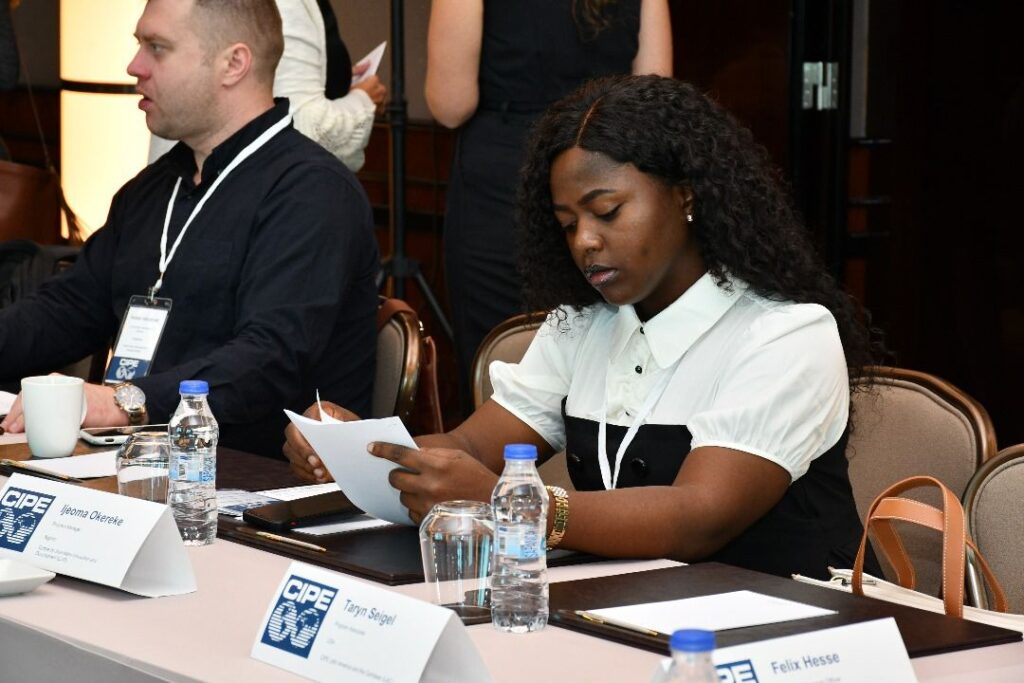
Ijeoma Okereke-Adagba: “Women, first of all, must not settle for the less, and it’s the same advice I’ll give to anyone, whether you’re a man or a woman.”

If you were to rethink or do differently how you pursued your career, what would you do?
I’m not sure I’ll still be able to follow whichever ‘different’ path I propose because only God makes it possible. But I’m grateful for the right set of people I have around me who daily motivates me (directly and indirectly) to become a better version of myself.
To aspiring, young, and upcoming journos in the media and broadcast sectors, what advice and tips would you like to share with them that’ll help them excel in this space you wished you knew before you started your career and while learning on the job?
Start somewhere. Don’t sit and imagine everyone have their lives all figured out. No one has is intact. Start somewhere and before you know it, you’re on your path to success. Again, there’s never a late time. My time is different from yours and so is yours from mine.





Comments